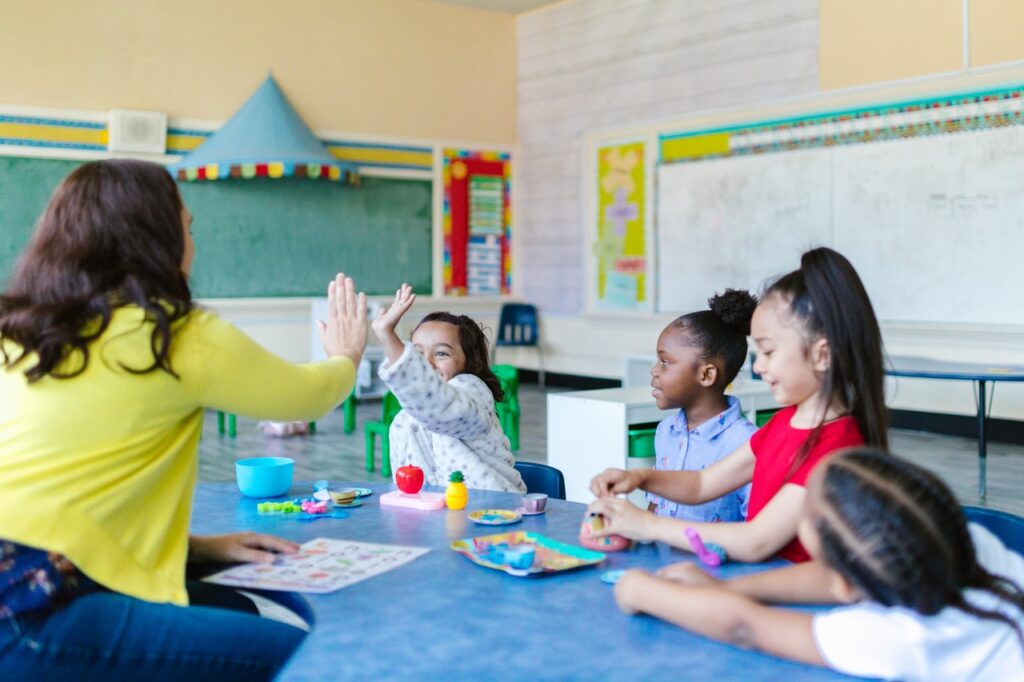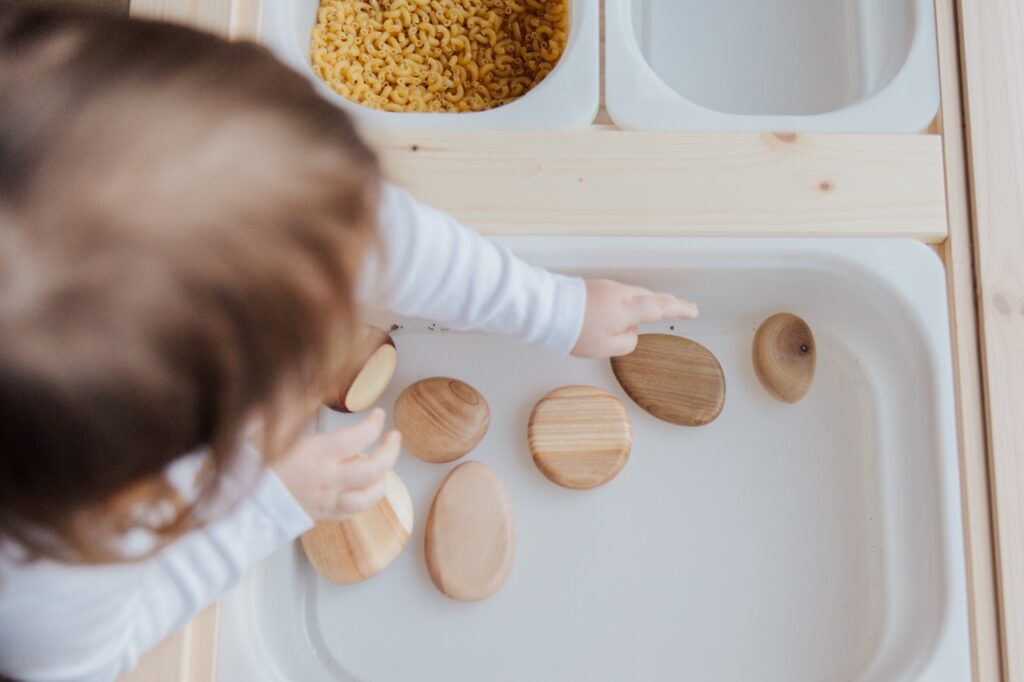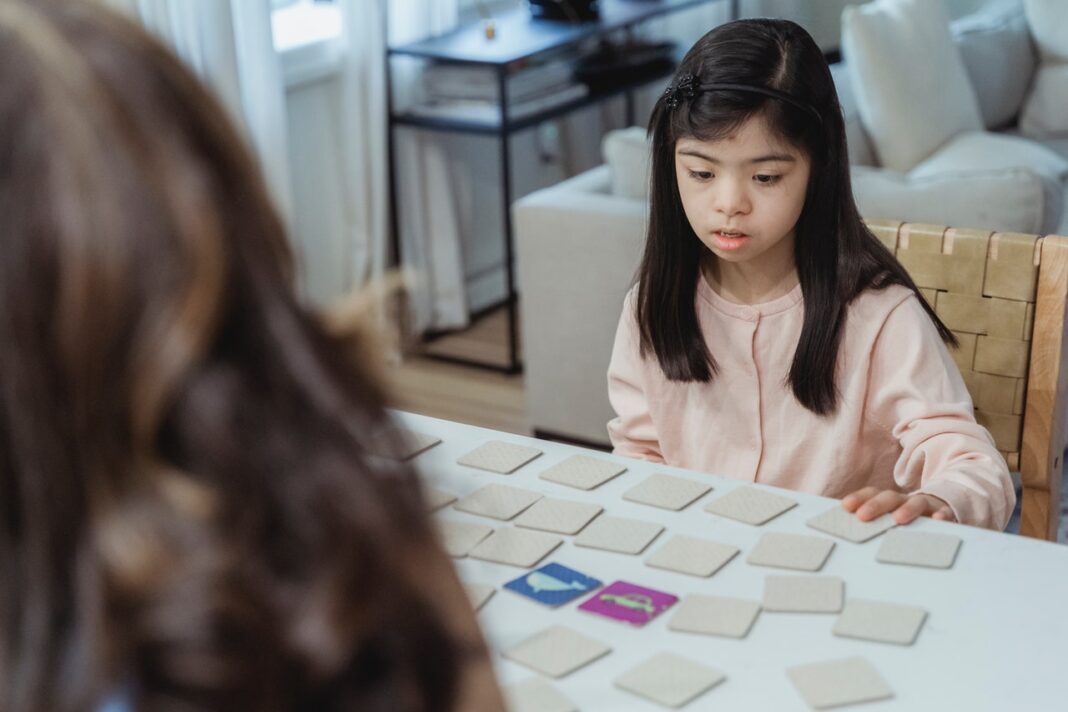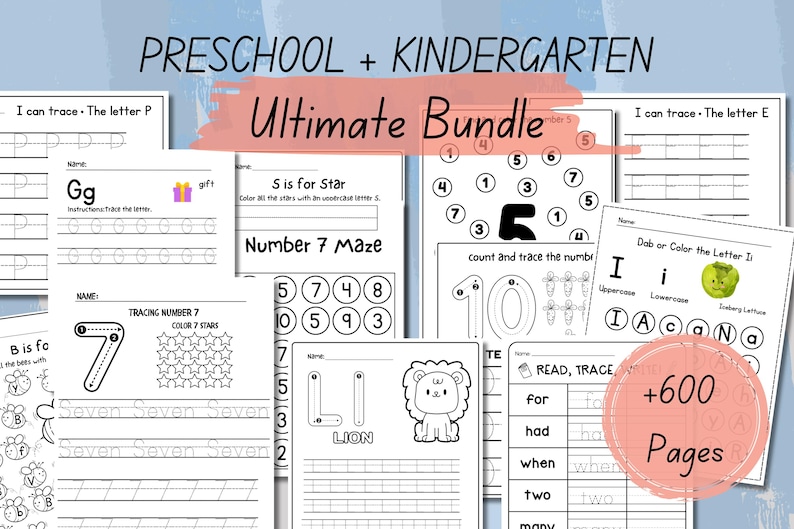It is time for a child to start Kindergarten If your child is already 5 or will be turning 5 on or before Oct. 1 (the date depends on your state) then it is time to start thinking about registering your child for kindergarten. However, this is also the time that many parents begin worrying about whether or not their child is ready for kindergarten.
How to know if your child is Ready for Kindergarten?
First, it is important to note that kindergarten entry is based primarily on age. In most U.S. states that simply means that if your child is or will be 5 years old on or before Oct. 1 (date may vary in some states) then your child must start kindergarten that school year.
The good news is that most primary programs are designed to take children with a variety of social, emotional, and academic needs and work with them based on their strengths.
However, we also know that children who start kindergarten with a good grounding in six skill areas have a head start and a higher success rate than children lacking these basic skills.
The skills that ease the transition into kindergarten and help lead to a successful kindergarten year fall into these basic areas: cognitive skills, listening and sequencing, language skills, fine motor skills, social-emotional skills, and gross motor skills.

The 7 Developmental Domains in Early Childhood
Cognitive skills that will help your special needs child be better prepared for kindergarten include the usual suspects such as knowing the alphabet, primary colors, and shapes, and being able to count to ten.
You should also work with your child to make sure she knows her phone number, address, birthday, and age.
Some emergent literacy skills also include being able to identify his name in writing, writing his name, answering questions about a story, understanding that words are read from left to right, knowledge of some nursery rhymes, recognizing written numbers, vocabulary, and Sight words below.

Listening and sequencing are also important skills and this includes the ability to follow simple directions, pay attention, retell a simple story in sequence, repeat a sequence of sounds, and repeat a sequence of numbers.
In addition to the emergent literacy skills connected with cognitive skills, there are also Language skills connected to relationships such as big and little, short and tall, more and less, up and down, top and bottom, in and out, over and under, front and back, and slow and fast.
While we often associate school simply with cognitive skills, it is important that children also have fine and gross motor skills as well as social-emotional skills.
Fine Motor skills include being able to tie shoes, hold crayons with fingers, copy a straight line, copy a vertical line, copy a circle, hold and use scissors correctly, cut on a line, button buttons, work a simple puzzle (six pieces), and zip clothing.

Gross motor skills include hopping, jumping, walking a straight line, skipping, galloping, throwing a ball or bean bag, catching, clapping hands, and kicking a rolling ball.
Social-emotional skills include sharing with others, getting along with others, maintaining self-control, verbal self-expression, and the ability to take care of toilet needs independently. Also, social-emotional workbooks are another great way to teach social skills.
If your child has all these skills mastered then they are well on the road to success in kindergarten. Don’t worry if your child has not yet achieved success with all these skills. You can continue to work on the skills right up until the start of school and certainly, after school has started you can team up with your child’s teacher.
Special Education Websites and Worksheets

Getting your special needs child ready for school in any grade can be a very exciting but scary emotion all at the same time. But with great practice at home in preparing your special needs child or teen with great educational resources at home learning can be made fun. Just check out these educational resources below to help jumpstart your child’s educational journey at home.
- Simple activity learning packet: This is a simple mini academic packet that you can take on the go or practice at home.
- ABCmouse: Another great educational learning platform for special needs kids and teens who struggle with the basics of (reading, math, social skills, science, and social studies).
- RoomRecess.com: I often use this website a lot when helping my special education students in the classroom. This website is great for children ages K-8th grade and offers a lot of FREE educational games for learning in all basic subjects such as reading and math.
- Starfall.com: Great for children who are below grade level and struggling high schoolers who are reading on a Kindergarten reading level. Starfall is the way to go when catching readers up. This platform starts from the basics and moves the students to where they should be through fun academic and educational games.
5 Frequently Asked Questions About Kindergarten (With Helpful Answers for Parents)
1. What Age Should My Child Start Kindergarten?
Most children start kindergarten at age 5, but the exact cutoff date varies by state and school district. Some states require children to turn 5 by a specific date, while others offer flexibility. If your child has a birthday close to the cutoff, you may be wondering whether to start them early or wait another year. Factors like social readiness, independence, and attention span can help determine if your child is ready for kindergarten.
2. What Skills Should My Child Have Before Kindergarten?
While academic skills like recognizing letters and numbers are helpful, kindergarten readiness goes beyond ABCs and 123s. Some key skills include:
- Social skills: Sharing, taking turns, and following simple instructions.
- Fine motor skills: Holding a pencil, using scissors, and buttoning clothes.
- Self-care skills: Using the bathroom independently, washing hands, and tidying up.
- Listening and following directions: Paying attention during storytime and following multi-step instructions.
Don’t worry if your child hasn’t mastered all of these—kindergarten teachers work on developing these skills throughout the year.
3. How Can I Prepare My Child for Kindergarten?
To make the transition smoother, start practicing routines early. Here are a few ways to prepare:
- Visit the school: Attend orientation or take a tour so your child feels familiar with the environment.
- Practice morning and bedtime routines: A consistent schedule helps children adjust to a school day.
- Encourage independence: Let your child practice putting on their backpack, opening lunch containers, and following simple instructions.
- Read together daily: This builds vocabulary, listening skills, and a love for learning.
- Play and socialize: Arrange playdates or enroll in preschool activities to develop social skills.
4. What Will My Child Learn in Kindergarten?
Kindergarten focuses on both academic and social development. Some of the key learning areas include:
- Language & Literacy: Learning letters, sounds, sight words, and early reading skills.
- Math: Counting, recognizing numbers, basic addition and subtraction, and patterns.
- Science & Exploration: Observing the weather, seasons, animals, and simple experiments.
- Social-Emotional Learning: Understanding feelings, making friends, and problem-solving.
- Fine & Gross Motor Skills: Writing, cutting, climbing, and coordination activities.
Kindergarten teachers use hands-on learning, play-based activities, and structured lessons to help children grasp these concepts.
5. How Can I Support My Child’s Learning at Home?
Parental involvement plays a key role in a child’s kindergarten success. Here’s how you can help:
- Read together every day and talk about the story.
- Practice counting and sorting objects during everyday activities like grocery shopping.
- Encourage creative play with puzzles, building blocks, and pretend games.
- Ask about their day to show interest in their experiences.
- Establish a homework routine (if required) to build responsibility.
By making learning fun and engaging at home, you’ll reinforce what your child is learning in school and boost their confidence.
Final Thoughts
Starting kindergarten is an exciting and sometimes overwhelming time, but being informed and prepared can make the transition smoother. By understanding when to start, what skills to focus on, how to prepare, and how to support learning, you can help your child thrive in their first year of school.
Do you have more questions about kindergarten readiness and early learning? Drop them in the comments below! 🚀✨







